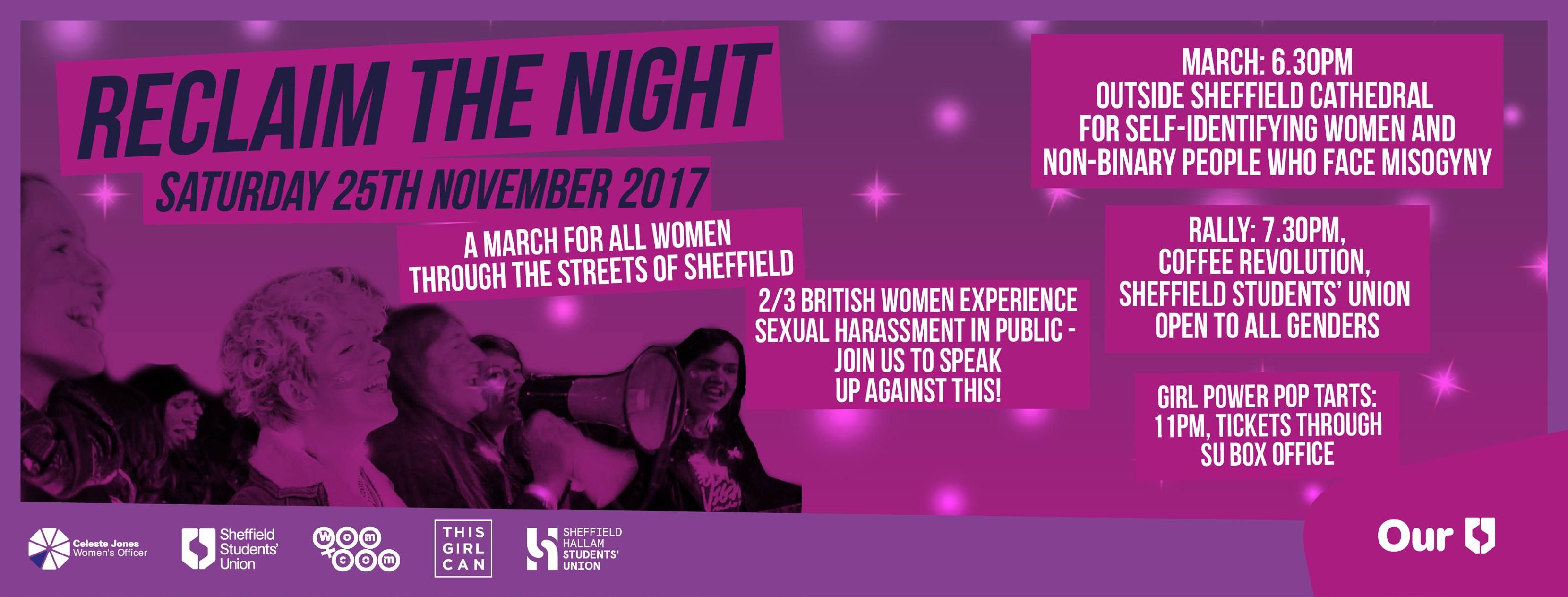
Why events like Reclaim the Night are so important
Nobody should have to feel uncomfortable walking alone
This Saturday in Sheffield is Reclaim the Night. November 25th also happens to be the International day for Elimination of Violence against Women. The event will see self-identifying women and non-binary people who face misogyny march to raise awareness over the threat of sexual assault and harassment.
Reclaim the Night marches have grown in popularity over the past few years, however the history of the march doesn’t seem to be common knowledge. Many people, myself included, may have not of even heard of it before coming to university.

Staring in 1977 in Leeds, the first Reclaim the Night march was organised by a local Feminist group. Living in the shadow of the Yorkshire 'Ripper’ murders, these women were concerned for their safety and frustrated at the limited response of police in regards of help. Frustration turned to anger when police advised that women wanting to avoid being attacked should just avoid going out at night. This ‘advice’ was not only impractical but offensive, by telling women to avoid leaving the house is to imply that being attacked or murdered was somehow their fault.

It was this anger and outrage at the fact the police were not only dismissive of these women’s concerns but the victim blaming that led to a march to ‘Reclaim the Night’. These marches now take place annually across the country highlight how common assault, sexual harassment and gender based violence still is.
Statistics reveal two thirds of women have experienced street harassment and 63 per cent feel unsafe while out in a public space. Furthermore, the majority of women feel the need to take extra precautionary methods when travelling alone, these include leaving places earlier to avoid travelling alone in the dark, walking different routes in the evening and choosing to take a taxi instead of using public transport. The Everyday Sexism project, founded in 2012, contains over 100,000 entries of women recounting their daily experiences of catcalling, harassment and assault from all around the world.

Most women will be able to recount a time where they, or someone they know have felt scared while out due to harassment. Simple things such as taking a taxi, walking down the street, choosing the attend a late finishing event alone suddenly become daunting. The familiar fear of seeing a group of people walking behind you at night, trying to judge every turn your taxi driver takes when you’re alone to make sure they’re not going in the wrong direction, feeling nervous at the prospect of walking home late. It’s situations like this that remind us that we’re never really in full control of our own bodies and what may seem like a joke or a laugh to some to us is a reminder that we can never truly feel comfortable in ourselves.
Even now, 40 years after the first march, the dismissive “just stay inside if you’re scared” response is still used, as if that’s somehow even possible in winter when it goes dark before 5pm. No one should have to feel scared when they leave the house, we shouldn’t have to plan our days to end before a certain hour.
Harassment isn’t a joke. It’s humiliating. Being catcalled or harassed in public, left feeling embarrassed as though, somehow, it’s your fault. This is a daily lived experience for so many and its why events like Reclaim the Night will always be important.









































